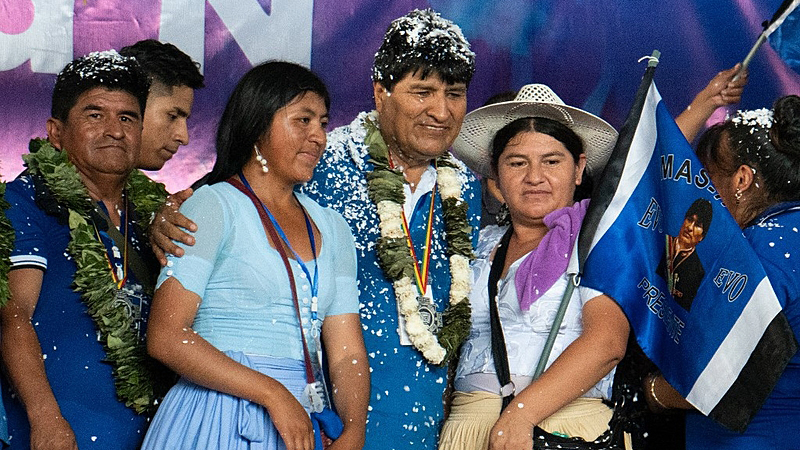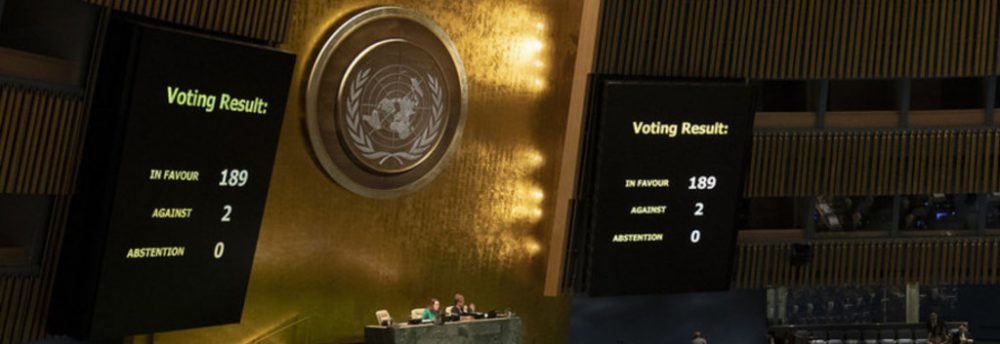The growing divisions between Luis Arce and Evo Morales came to ahead in the party’s congress held this weekOctober 06, 2023 by Brasil de Fato

Evo Morales poses with supporters during the congress: he said that the current government is worse than that of the neoliberals – PABLO RIVERA / AFP
The split in Bolivia’s ruling political party has become official. President Luis Arce and vice-president David Choquehuanca are no longer part of the MAS (Movement towards Socialism) party, which ratified the decision, informally announced on the 24, to present former president Evo Morales (2006-2019) as its candidate in the 2025 elections.
The MAS held its tenth congress from October 3-4 in the town of Lauca Ñ, a coca growing region in the center of the country. On that occasion, the party decreed the “self-expulsion” of Arce and Choquehuanca, for not attending the meeting, and of 20 other deputies aligned with the Arce government.
On Tuesday, the day of the inauguration of the congress, Arce made a surprise appearance at a meeting of farmers in La Paz. He explained that he wasn’t going to Lauca Ñ because the invite had taken space away from various social organizations, such as the powerful Confederación Sindical Única de Trabajadores Rurales, while the representation of the party apparatus had grown significantly.
Arce’s followers questioned the legitimacy of the congress before the Constitutional Court, which ordered its suspension just hours before it was due to end. Morales expressed concern on his social networks about an alleged police intervention underway, which did not take place. “Unfortunately, the government of Lucho and David, worse than the neoliberal governments, until the last moment wanted to postpone the congress,” said the former president in his speech.
“We continue to make national and international history. The MAS will recover the revolution to save the homeland again,” Morales said.
On X (formerly Twitter), Evo posted: “The unity, determination, conscience and dignity of the MAS members prevailed over the desperate acts that tried in vain to sabotage, even threaten our lives, and politically use some judges to make us fail. The strength of the people is unstoppable and invincible, sisters and brothers.”
The Constitutional Court’s decision could render the congress resolutions legally invalid. The MAS would not have complied with the requirement to renew its leadership required by electoral law, which would jeopardize its legal existence. A committee of Morales’ lawyers told the press that the Constitutional Court’s decision was “fraudulent” and would have no legal effect.
If the Constitutional Court’s decision prevails, the Electoral Court will have to give MAS time to organize a new congress and choose another leadership. Or annul the party, which could have unpredictable political consequences.
At the MAS congress, hundreds of leaders dressed in the party’s blue color, wearing T-shirts and caps with Morales’ image, proclaimed him the “undisputed leader.” At the same time, the farmers gathered with Arce called him an “academic”, a “scholar” and “South America’s greatest economic scientist.”
What is at stake is a contest to decide who will be the candidate of the popular and Indigenous sectors. According to Bolivia’s latest census, 40.6% of the population claim to be Indigenous. Morales was the first president to represent this section of the population. He came to power after a process of population impoverishment—between 1998 and 2002, the Gross Domestic Product (GDP) per capita fell by 20% and unemployment doubled—and led a process of income redistribution.
Morales left power after suffering a coup d’état in 2019. After the interim government of Jeanine Áñez, who is now in prison, Luis Arce, who had been Minister of Economy in the Morales government, was elected president in 2020.
This article was translated from a piece in Portuguese originally published in Brasil de Fato.



